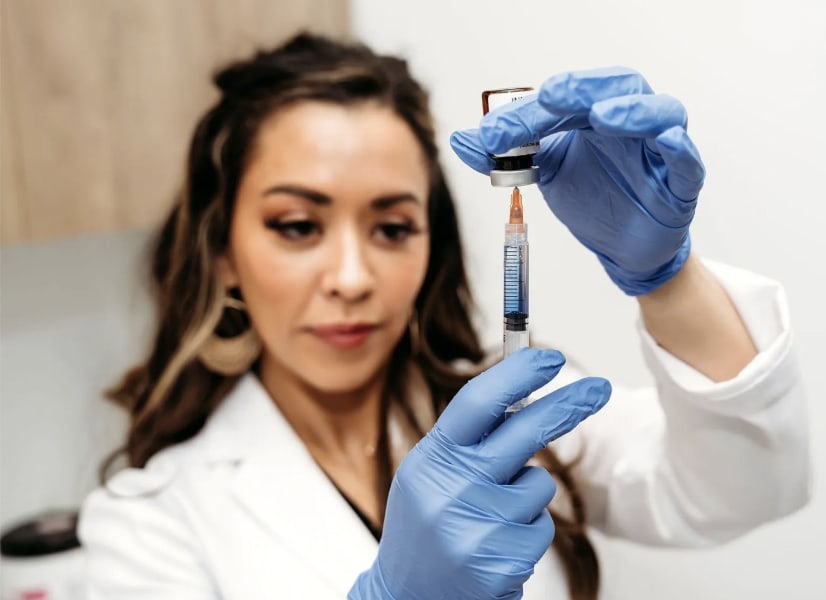In the quest for a longer, healthier life, peptide therapy has emerged as a revolutionary approach within functional medicine. Peptides, which are small chains of amino acids, act as signaling molecules in the body, guiding various physiological processes. As we age, these processes often slow down or become less efficient, leading to a decline in overall health and vitality. Peptide therapy aims to restore balance and function, targeting the root causes of aging to help increase longevity.
Peptides have a broad range of applications, impacting everything from mitochondrial function to neurocognitive health, gut integrity, weight optimization, and regenerative capabilities. Therapeutic peptides are also being explored for their potential applications in drug discovery and development, including their ability to inhibit specific protein-protein interactions and serve as drug candidates. Let’s explore how these remarkable molecules can support each of these vital areas.
1. Mitochondrial Health: Energizing Your Cells for Longevity
Mitochondria are often referred to as the powerhouses of the cell because they are responsible for producing the energy our bodies need to function. As we age, mitochondrial efficiency tends to decline, leading to fatigue, muscle weakness, and a general decrease in vitality. Peptide therapy can play a crucial role in revitalizing mitochondrial function by enhancing the cells’ ability to produce energy and by protecting them from oxidative damage.
When mitochondrial health is optimized, cells can better manage energy production and maintain various cellular processes, including regulating metabolism, calcium homeostasis, and the balance between cell proliferation and death. Enhanced mitochondrial function also supports metabolic processes, improving the body’s ability to utilize nutrients efficiently. This increased energy production not only boosts physical endurance and strength but also contributes to a greater sense of overall well-being, making it easier to stay active and engaged in life as you age.
2. Neurocognitive Health: Keeping Your Mind Sharp
Cognitive decline is one of the most significant concerns associated with aging. Memory lapses, difficulty concentrating, and slower mental processing are common issues that many people face as they grow older. Peptides offer a promising approach to preserving and even enhancing neurocognitive health.
Peptide therapy can support brain health by promoting the growth of new neural connections through the action of growth factors and protecting existing ones. This is crucial for maintaining memory, learning, and overall cognitive function. Additionally, the epidermal growth factor receptor plays a significant role in cognitive health by regulating processes that protect against oxidative stress and support cell signaling pathways, including the protection of crucial intracellular molecules.
Peptides can enhance communication between neurons, which can improve mental clarity, focus, and mood. By supporting these processes, peptide therapy helps to preserve cognitive function, reducing the risk of neurodegenerative diseases and keeping the mind sharp well into later years by bolstering the immune response.
3. Gut Health: The Foundation of Wellness
The gut plays a central role in overall health, influencing not only digestion but also immune function, mental health, and even skin condition. A compromised gut can lead to a host of health issues, from chronic inflammation to nutrient deficiencies and chronic fatigue due to its impact on metabolic functions and mitochondrial health. Peptides, which are shorter chains of amino acids connected by peptide bonds, can be incredibly beneficial in promoting gut health by supporting the integrity of the gut lining and reducing inflammation.
Additionally, gut bacteria play a significant role in skin health. An imbalance in beneficial bacteria can negatively affect the immune system and contribute to skin conditions like psoriasis.
Healthy gut function ensures that nutrients are effectively absorbed, waste is efficiently eliminated, and harmful bacteria are kept in check. Peptide therapy can help repair and strengthen the gut lining, reducing the risk of conditions like leaky gut syndrome, which is linked to numerous chronic health issues. By fostering a healthy gut environment, peptides support a strong immune system, better mood regulation, and improved digestion—all of which are essential for maintaining long-term health and longevity.
4. Weight Optimization: Achieving and Maintaining a Healthy Body Composition
Maintaining a healthy weight is crucial for longevity, as excess body fat, particularly visceral fat, is associated with a higher risk of chronic diseases like heart disease, diabetes, and metabolic syndrome. Peptide therapy can assist in weight optimization by influencing metabolism, enhancing fat loss, and supporting muscle growth.
Peptides can help regulate appetite and improve the body’s ability to burn fat, making it easier to achieve and maintain a healthy weight. Additionally, they can stimulate muscle growth and enhance the production of growth hormone, which is important not just for aesthetics but also for metabolic health. Lean muscle mass helps to increase the body’s resting metabolic rate, making it easier to manage weight over the long term. By supporting healthy body composition, peptide therapy contributes to a reduced risk of chronic diseases and enhances overall physical fitness, which are both critical for a longer, healthier life. Moreover, maintaining a healthy weight can potentially inhibit tumor growth, reducing the risk of cancer and improving patient outcomes.
5. Regenerative Health: Promoting Healing and Rejuvenation
One of the most exciting applications of peptide therapy is its ability to support the body’s natural regenerative processes. As we age, our bodies become less efficient at repairing tissues, leading to slower healing times and a greater susceptibility to injuries and degenerative conditions. Synthetic peptides play a crucial role in medical treatments by mimicking natural peptides to stimulate tissue repair and regeneration, making them a valuable tool in maintaining youthful function and appearance.
Peptide drugs have been developed for various therapeutic applications, including the treatment of medical conditions like diabetes with synthetic peptides such as insulin. By enhancing the body’s ability to repair itself, peptide therapy can speed up recovery from injuries, reduce inflammation, and promote healthier skin, hair, and joints. This regenerative effect can help counteract some of the physical signs of aging, such as wrinkles, thinning hair, and joint stiffness. Beyond aesthetics, improved regenerative health means better mobility, fewer chronic pains, and a higher quality of life as you age.

Conclusion: Unlocking the Potential of Peptides for a Longer, Healthier Life
Peptide therapy represents a cutting-edge approach to longevity within functional medicine, offering a range of benefits that target the underlying mechanisms of aging. By improving mitochondrial function, protecting neurocognitive health, enhancing gut integrity, optimizing weight, and supporting regenerative processes, peptides provide a comprehensive strategy for extending both lifespan and healthspan.
As with any therapy, it’s essential to work with a knowledgeable healthcare provider who can tailor peptide treatments to your specific needs. When used appropriately, peptide therapy can be a powerful tool in your arsenal for aging gracefully and maintaining vibrant health well into your later years.



